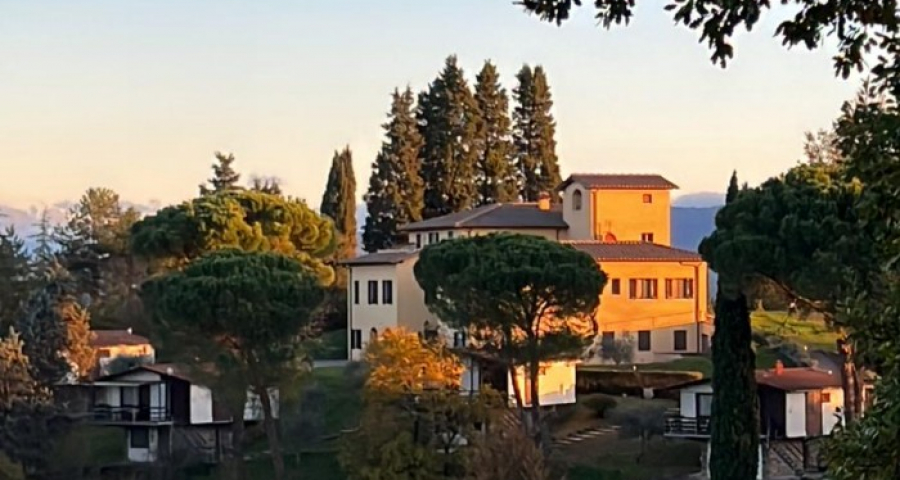Opinions - On the occasion of the VII World Day of the Poor, established by Pope Francis, let’s explore solutions for progress together
Luigino Bruni
published in Avvenire on 19/11/2023 *
Poverty is part of the human condition. The human being, the Adam, is a poor man. He is so when he is born and for the many years of his childhood, he is so when he gets sick, when he grows old, he is so when he dies. Because poverty is nothing more than a manifestation of fragility, lack of autonomy and vulnerability, which are intrinsic dimensions of the life of every woman and every man, yesterday, today, and always, even though the history of humanity is also a constant struggle to reduce the fragility of existence. Poverty, therefore, does not concern others: it concerns us. At the same time, there are many kinds of poverty and recognizing the common condition of poverty among human beings should not distract us from distinguishing the forms of poverty or from identifying those that are unjust, avoidable, relievable and eliminable.
The Gospel has generated its own vision of poverty which is different and revolutionary and which has not become a culture. Christianity has followed Jesus' teaching in many things but less in his view of poverty. Jesus called the poor ‘blessed’, he proposed to his followers to renounce wealth for a different and greater freedom. Then came Francis who loved poverty to madness, to the point of making extreme poverty the ideal of his life, a model for his many brothers and sisters who still choose evangelical poverty freely, also to free those who do not choose poverty but endure it.
For this reason, in the Gospels the word poverty has a different semantics from that used by governments, economists, and institutions. Christian poverty does not only indicate an evil, a lack, a disease to be fought and if together with the evil poverty we were also to eliminate from the earth also the poverty of Jesus, of Francis, of Mother Teresa and of their many followers (conscious and unconscious) the world would really be much poorer. The poverty of the Gospel has a very broad spectrum, ranging from the tragedy of misery to the bliss of those who choose poverty as a path to liberation and self-liberation for a different kind of happiness.
Pope Francis has chosen a beautiful phrase from the Book of Tobias for this seventh World Day of the Poor: "Do not turn your face away from anyone who is poor" (Tob.4:7). The Church is first of all interested in the poor, the new poor of today (those who suffer loneliness, climate change or loss of the meaning of life) and in those of yesterday; therefore she is interested in real live people and only afterwards in the abstract concept of poverty. Reality is greater than ideas, so the poor are more important than poverty. That is why it is very significant that today is the day of the poor. We shouldn’t look away from poor people: we should look at them, then touch them and embrace them. There are many meanings of this invitation not to turn away from the poor, to see them, to look at them. Our capitalism does not understand the values of poverty, it does not esteem the poor; it despises them because it is afraid of recognizing its own poverty (aporophobia) and therefore it hides them under the illusion that by looking away the poor can be eliminated. Every act of care for a poor person begins with deciding that you want to see them, as someone who recognizes their poverty and shouts at it: ‘come out’.
An important dimension of ‘not looking away from the poor’ was indicated by Pope Francis to the young people of ‘The Economy of Francis’: "Even in theology, we have too often “studied the poor”, but we have rarely studied “with the poor”: from being the object of science, they must become subjects, because each person has stories to tell, a thought about the world. The first poverty of the poor is being excluded from having a say, excluded from the very possibility of expressing a thought that is considered serious. It is about dignity and respect, too often denied" (6th October 2023). In fact, there are too few thoughts, books and studies of the poor on their condition and on the condition of all. This lack of listening and recognition of their point of view is the source of much suffering for poor people. Without listening to what the poor think of themselves and their problems, even external actions are ineffective if not harmful. All this is called subsidiarity, which leads to the recognition that the first competence, the one which is truly necessary to escape from the evil form of poverty, is the competence possessed by those who live within that concrete and specific condition of poverty. Those who are more distant have other precious and necessary skills only if and when they arrive later, as help, an aid, to that first skill that only those who live within their problem have, almost never recognized as such.
That is why this day of the poor could be a precious opportunity to listen to the thoughts, words and ideas of the poor, about their lives and also about ours, because the world seen from the perspective of Lazarus, who collects the crumbs of our lavish meals, reveals different landscapes and perspectives necessary to understand it. Let’s give them the floor, not out of compassion but out of esteem and interest. Let us listen to them, let us not turn away from their faces or even from their thoughts and words. It is not enough to look at the poor: we must also listen to their narratives of the world, recognize their right to tell stories, visions and dreams. No poor person coincides with their poverty, because they are greater than their problem, and it is in this surplus between the person and their poverty that the principle of their liberation is found.
Looking at the poor is essential, but not enough. The Gospel also offers us important insights here. In the story of the episode of the blind man in Jericho we read: "As he approached Jericho, a blind man was sitting by the roadside begging... then he cried out, "Jesus, Son of David, have mercy on me!" Those who led the way rebuked him and told him to be quiet" (Lk. 18:35-38). Any unchosen poverty (as blindness was in the ancient world) is also the impossibility of crying out because those around the poor people choke the cry in their throats, out of shame, so as not to disturb, to delude themselves that poverty does not exist. So as well as with not averting your gaze, it is essential not to turn your ear away from the cry of the poor - in the Bible the ear is more important than the eyes: God cannot be seen, but He is a voice that speaks. Despite the attempts of the disciples to silence him, the blind man of Jericho "cried out all the more" (18:39) and Jesus listened to him and healed him; to remind us that the first fundamental right of the poor is the right to cry out and the first fundamental duty of men and women is to listen responsibly to that cry.
Finally, a great collective mechanism that our economic-social system has found to turn away from the poor is meritocracy. This meets with easy consensus because it presents itself as a new and better form of justice and even of inclusion of the poor; but as soon as you look at the fruits it generates you immediately understand that meritocracy, with its rhetoric of merit, is essentially an ideology that deludes itself into not seeing the poor by simply changing their name, calling them undeserving. Meritocracy is increasingly assuming the appearance of a religion, and therefore of a theodicy, that is, an explanation and justification of the evil and disorder of the world. Faced with the fact that on earth human beings have different fates and fortunes, this apparent injustice of the social order is explained and justified by resorting to an ethical principle that re-establishes the rational and just order that appears violated: if you are rich your wealth depends (or must depend) on your merits, and therefore if you are poor your poverty is the result of your lack of merit. Thus the fact of poverty (and wealth) becomes a fact of justice - the poor deserve their misfortune, as Job's friends tried to argue, but he did not allow himself to be convinced by those ancient theologies of merit.
The day when the last poor person will be convinced of their demerits, the rich will be quiet and justified in their not-looking and not-listening, the meritocratic cult will finally be perfect. And the poor will continue, in vain, to cry out, out of our sight.
* this is the full version of the article which was partly published in Avvenire
Credits foto: © Sebastiano Cerrino









